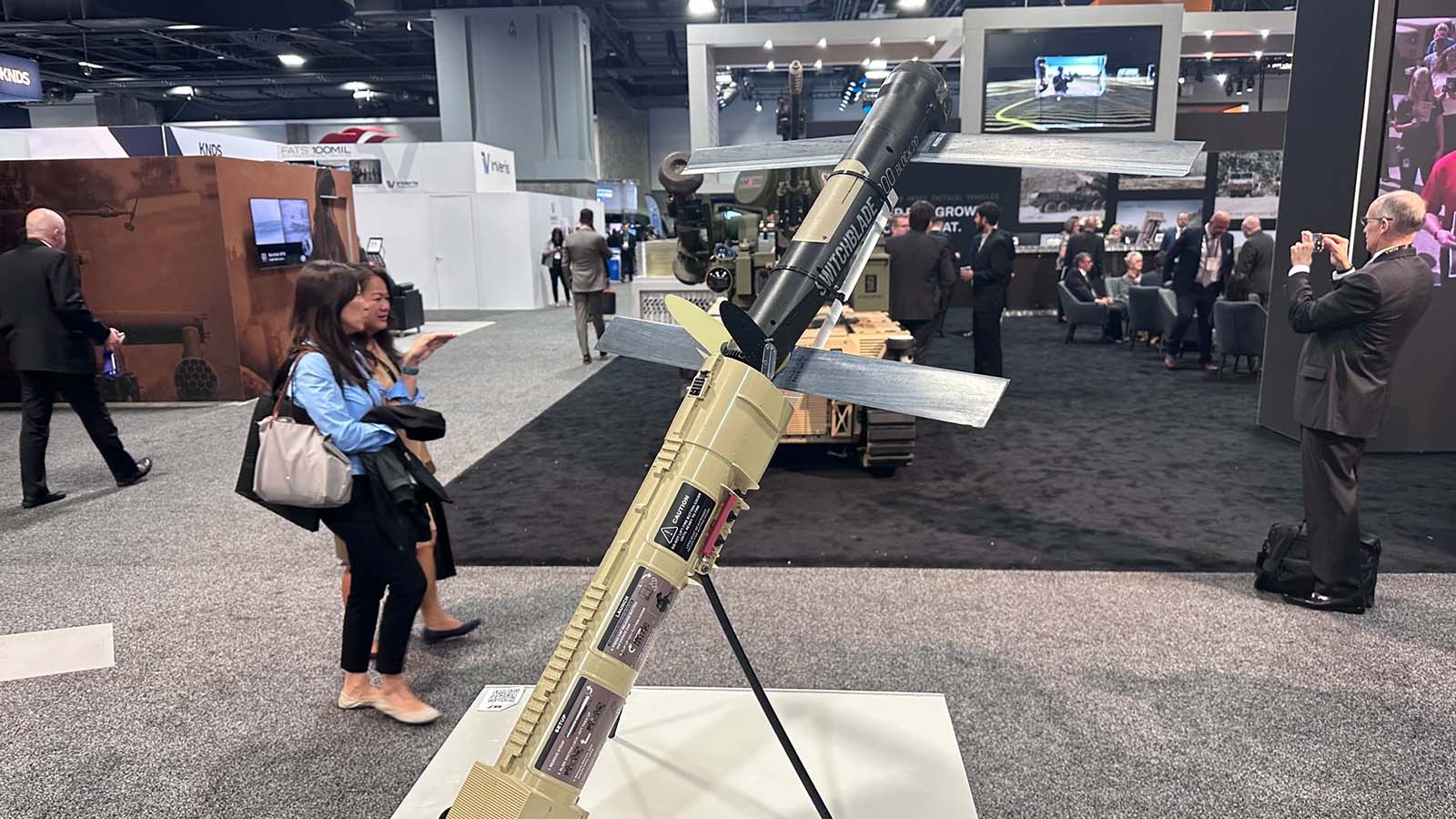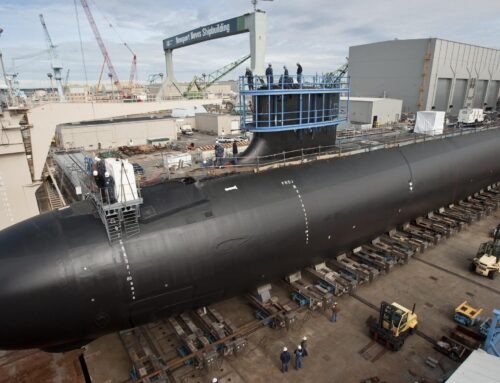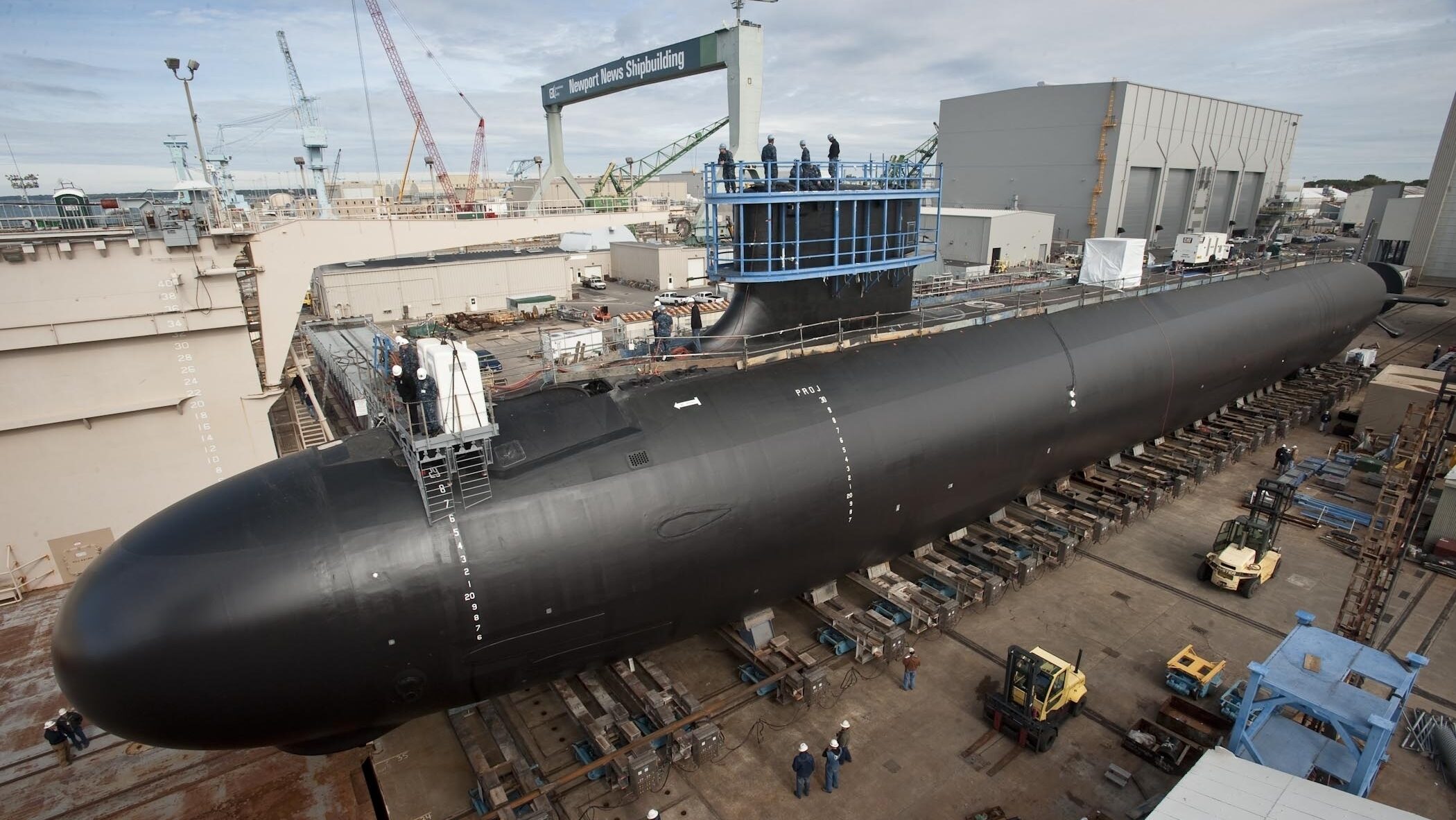AeroVironment’s Switchblade launcher sits on display at AUSA 2023. (Tim Martin / Breaking Defense)
WASHINGTON — Unmanned systems manufacturer AeroVironment is purchasing tech firm BlueHalo, the companies announced today, setting up a merger that could result in a major player on the unmanned systems market.
The deal is an all-stock transaction, with a value of approximately $4.1 billion, according to an AeroVironment announcement. The combined company is “expected to deliver more than $1.7 billion in revenue.” BlueHalo has “more than $900 million in revenues for 2024,” per the statement.
“For over 50 years, AV has pioneered innovative solutions on the battlefield, and today we are poised to usher in the next era of defense technology through our combination with BlueHalo,” Wahid Nawabi, AeroVironment’s chairman, president and chief executive officer, said in the announcement.
On paper, the two companies have little overlap, although some back-office jobs inevitably end up cut when companies merge. BlueHalo has focused on technologies in the space, counter-UAS, directed energy and electronic warfare realms, while AeroVironment has made its bones on unmanned systems, including loitering munitions. The company has found success particularly with its Switchblade family of loitering munitions, which has won Army contracts and been featured as part of the Replicator initiative.
It isn’t hard to imagine taking BlueHalo’s technologies and integrating them onto AV systems. Or, as the announcement puts it, “The companies’ shared culture of agile innovation and mission expertise will enable the combined entity to develop and deliver next-generation technologies that will have significant military value and redefine the next era of Defense Technology.”
In a note to investors, Byron Callan, an analyst with Capital Alpha Partners, said that this deal fits into a broader trend across the defense space.
“The structure of the global defense sector is changing, and this transaction underscores that transformation. Mid-tier suppliers largely disappeared in the 1990s during sector consolidation. There was another wave of M&A [mergers and acquisitions] in the mid-late 2010s as force protection companies that thrived during the Iraq and Afghanistan wars were bought up.
“The 2010s-2020s have seen a rise in new defense tech entrants, with capital provided by venture and private equity. BlueHalo is an example of that change,” Callan continued. “We expect this emerging mid-tier will take share from larger contractors.”











